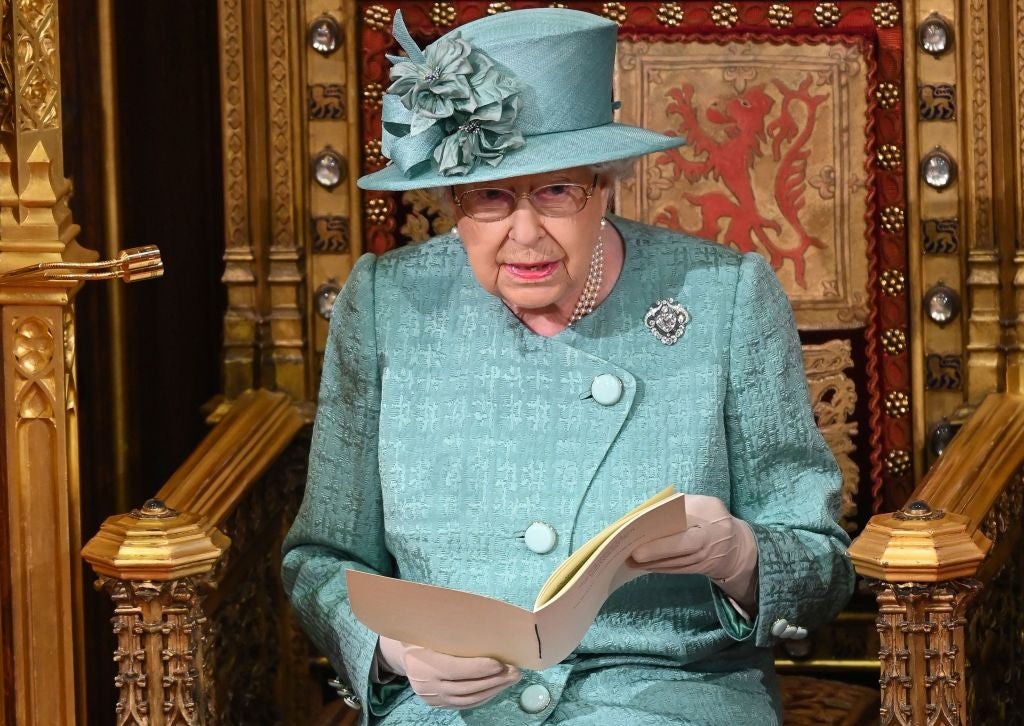Will the Queen’s speech offer another empty promise on social care reform?
Carers are the forgotten heroes of the pandemic. The Tories clapped but didn’t even offer carers the same 1 per cent pay rise as the NHS. Britain requires the kind of radical change seen after the Second World War


The Queen’s Speech next Tuesday is expected to include yet another vague pledge to reform social care in England “this year” without any detailed proposals. That would be the same meaningless (and undelivered upon) promise that the government made last year.
Remarkably, it’s almost two years since Boris Johnson claimed on his first day as prime minister that he already had a plan to “fix the crisis in social care once and for all”.
We’re still waiting. Rishi Sunak is balking at the cost. Nothing new there; the Treasury has been doing so for 25 years. But now we can’t afford not to reform the system, after the flaws cruelly exposed by the coronavirus, which killed 30,000 care home residents. The sector was on the brink before the pandemic. With many families now reluctant to see relatives go into residential care, the survival of many care homes is at risk. More Treasury sticking plasters will not be enough.
Johnson is attracted by the sensible idea of a cap on people’s lifetime spending on care. A £35,000 limit was recommended 10 years ago by a commission chaired by the economist Andrew Dilnot, who today told BBC Radio 4 that the failure to act is “a stain on our nation”. He also proposed that the “asset threshold” above which people must meet their care bills without state help be raised from £23,250 to £100,000.
His blueprint would be a good starting point but would not be enough. Ministers must address the gaping funding hole and low wage levels that scar the sector; the Tories clapped for carers but didn’t even ensure that social care workers got the miserly 1 per cent pay rise for the NHS. Care workers are paid between £8.33 and £9 an hour, often for back-breaking, exhausting 12-hour shifts; one in four is on a zero-hours contract. Turnover is high, as carers move to the NHS or other care employers for a paltry pay rise.
Carers are the often forgotten heroes of the pandemic, as I’ve seen with my own eyes with a mother and mother-in-law living in a care home. My 96-year-old mum’s home has had several Covid outbreaks. She caught the virus but, thankfully, survived. When she returned from hospital, five fellow residents who were her friends were no longer alive.
Her home has struggled in this crisis, but the staff do their best in difficult circumstances, switching to different roles amid a budget squeeze that has reduced the quality of care. The carers’ own commitment cannot be faulted; last week, one came in on her day off to push my mum in her wheelchair to a clinic so she wouldn’t have to wait hours for an ambulance to take her back.
My mother-in-law died from pneumonia in February, 98 years young. Her home kindly ensured that my wife could spend time with her every day for the final three months of her life. I will never forget the herculean efforts I witnessed at this home to keep the virus out; unlike most in its area, it has remained Covid-free.
No one I talk to in the care sector expects a big bang; people accept that reform is likely to be staged over years. But Stephen Chandler, president of the Association of Directors of Adult Social Services (Adass), told me: “Everyone who receives care and support, and the 1.5 million people who provide it, deserve to know how ministers propose to put an end to 25 years of uncertainty over its future.”
Adass wants a minimum social care wage of £10.90 an hour to bring in parity with NHS support workers, and an immediate funding injection to stabilise the system. The Health and Social Care Select Committee, chaired by Jeremy Hunt, proposes a £7bn-a-year increase by 2023-24 to meet demographic demand, improve pay, and recover some of the ground lost since 2010.
Reflecting the sector’s frustration, Chandler said: “We have grown accustomed to disappointment and false dawns in the long wait for social care reform. But after nothing was said in the chancellor's budget in March, we did think we would get some indication of the direction of travel and timeline in the Queen's Speech. We really must have some detail before the summer.”
Ahead of tomorrow’s elections, the government is happy to promise a white paper on “levelling up”, hoping that will play well in the red wall. But what about levelling up the Cinderella of our health and care system? Johnson shouldn’t forget that red wall voters expect good public services.
Ministers’ latest excuse for inertia – being in the middle of a pandemic – no longer works; we are finally coming out of it. Indeed, the post-Covid recovery at the heart of the Queen’s Speech requires a “1948 moment”. A crisis in the public finances after the Second World War did not prevent radical reform then and shouldn’t now. Johnson knows what needs to be done. It’s time for him to keep his promise – if necessary, by overruling his chancellor.
Join our commenting forum
Join thought-provoking conversations, follow other Independent readers and see their replies
Comments
Bookmark popover
Removed from bookmarks